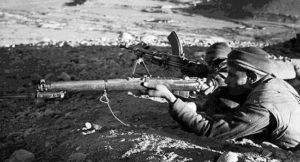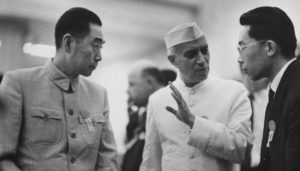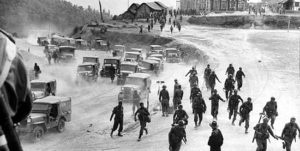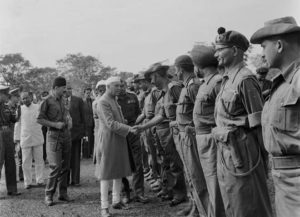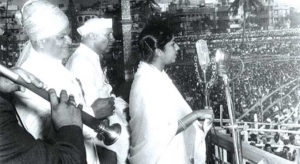India remembers 1962 war with China
By Rekha Bhattacharjee
October 20th 2017 India commemorates the 55th Anniversary of the war with China in 1962!
This defining conflict ruptured India’s relation with China. The tragic memory with its military humiliation and crippling of our first prime minister Nehru still haunts and torments the country.
“The scar of 1962 runs through India’s heart,” a Chinese diplomat and scholar on India had said with genuine feeling adding, “which has not fully healed.”
Historical memories have a life of their own and the injured national psyche is not easy to repair. This has been reflected in the border negotiations for years with China.
In 1954 China and India had concluded the friendly “Panchsheel” – the five principles of ‘Peaceful Co-existence’- under which India recognised Chinese rule in Tibet.
Prime Minister Nehru persistently backed China’s entry into the United Nations. His vision was for a Co-operative Global Order and relations with China being the cornerstone.
He promoted his over trust on China by promulgating the slogan ”“ ”˜Hindi Chini Bhai Bhai’!
The Chinese aggression in 1962 put an end to India’s aspirations of becoming a great Asian power and of Nehru establishing himself as a world leader!
In the annals of history the 1962 War was a “Himalayan Blunder!”
China first claimed Ladakh then crudely laid claim to the whole of the North-East Frontier Agency – although Chou En Lai had affirmed to Nehru that Chinese would respect the eastern boundary.
Indian leadership did not expect Chinese use of force across the Himalayas!
For the North East (ASSAM) the Chinese crossed Bomdila a mere stretch of 90 kilometers remained between them and Assam.
There were no Indian Army to prevent their progress – Tezpur in Assam was about to fall!
General Thapar announced “Tezpur may fall anytime sir!” Nehru’s eyes were glazed and expressionless. Krishna Menon kept looking through the window, the silence was deafening. General Thapar handed in his resignation letter.
“Nehru made a mistake and a deadly one at that. History does not forgive anyone. It never did, it never will. It had not forgiven Krishna Menon or Nehru and for history it was a Himalayan blunder.” referencing Mrinal Talukdar a senior journalist at that time of the Northeastern region with 25 years of experience.
For Delhi, all that mattered was Nehru’s “Forward policy” while the army did not have enough troops, no roads, rations, warm clothing for the hills or ammunition! Nehru’s ‘Forward policy was the Law!
All realised in the headquarters that India’s Forward Policy had boomeranged !
September 2, 1962, Defence Minister Menon while Nehru was away in Colombo, Desai in Washington, L B Shastri was the Home Minister was also not consulted! The entire Defence and Foreign Affairs which was handled by the duo Nehru and Menon, their golden decade! Defence Minister Menon without consulting the parliament or the cabinet alone decided to throw out the Chinese troops forcibly! He alone took this important historical decision of the Operation Leghorn! He sent out written orders to throw out the Chinese troops forcibly from the Thogla ridge.
The prestige of India had been shattered due to the blunders committed by Nehru, Menon and General Kaul. The Chinese destroyed the whole of the Indian troops.
At midnight November 20th, China had announced the Chinese Frontier Guards on 21st November will cease fire along the entire Sino Indian Border!
Why did the Chinese go back? The entire world was aware of the answer – China wanted to teach India a lesson!
What did India learn in the last fifty-five years from the Chinese Aggression? The ”˜Hindi Chini Bhai Bhai’ suddenly dissolved into aggression and distrust – the tragic memory of which still torments the country.
For the North-East the scars of 1962 are still alive and painful.
For India, it crippled the Indian Army. Prime Minister Nehru shed tears as Lata Mangeshkar sang the patriotic song ”˜Ai Meri Watan Ke Logo’ for the first time in front of PM Nehru. He never recovered from the Chinese aggression and died a broken man in 1964.
“Nehru, apparently without consulting any of his cabinet or officials apart from the foreign secretary M J Desai, wrote two letters to Kennedy describing the situation as ‘really desperate’ and requesting the immediate dispatch of a minimum of 12 squadrons all weather fighters and the setting up radar communications and protect Indian cities from air attacks by the Chinese till Indian personnel had been trained. Nehru also asked for two B47 bombers squadrons to enable to strike at Chinese bases and air fields”- Sarvepalli Gopal
Short URL: https://indiandownunder.com.au/?p=10015

